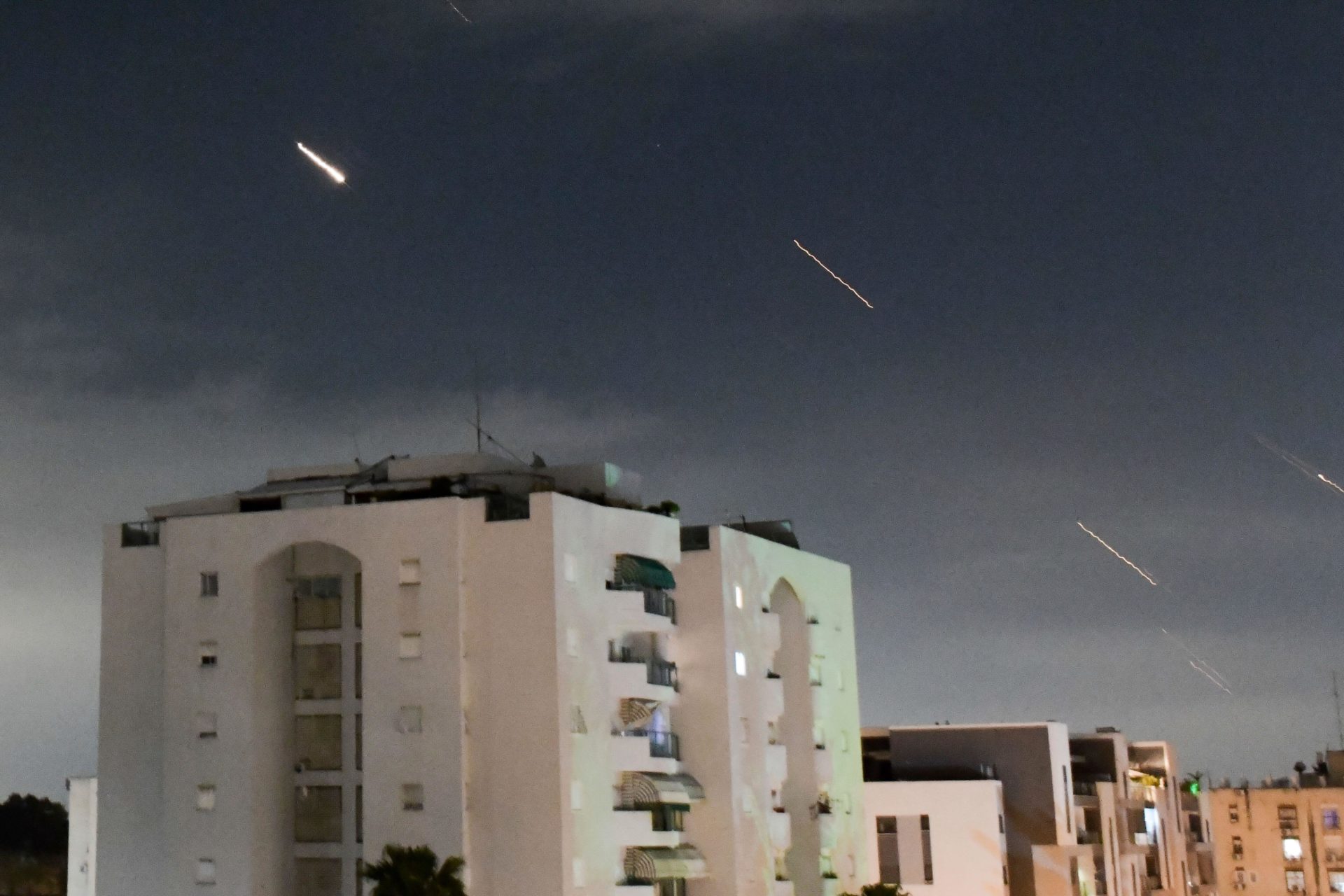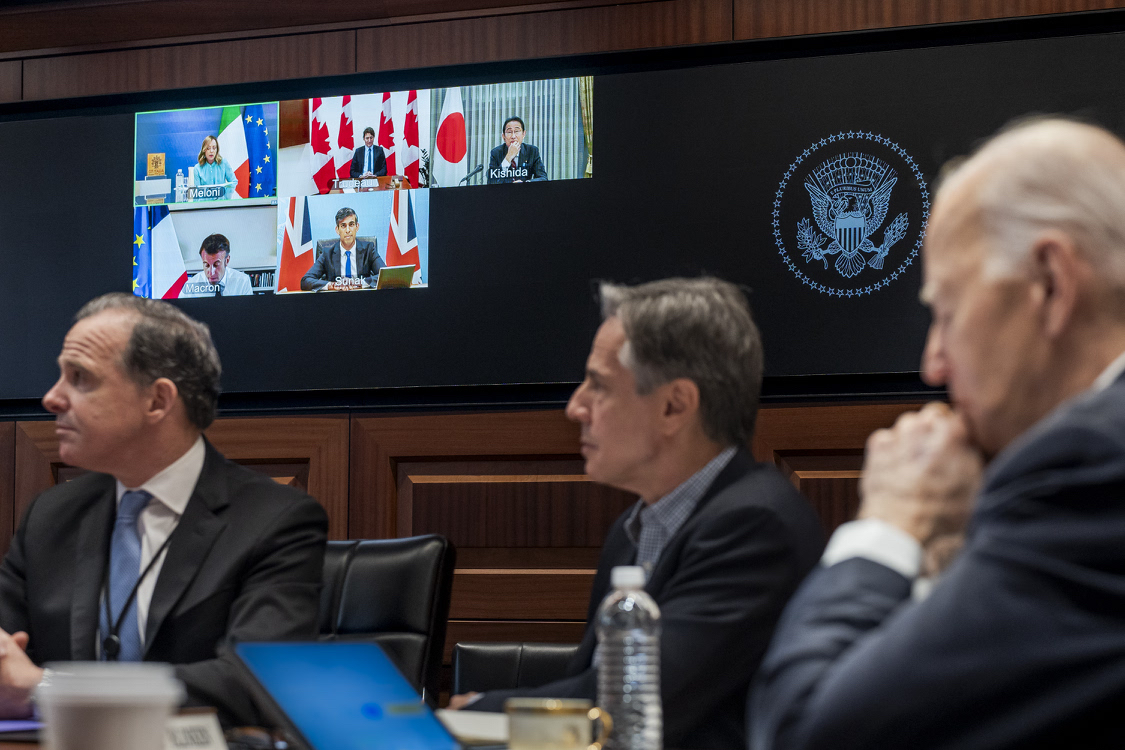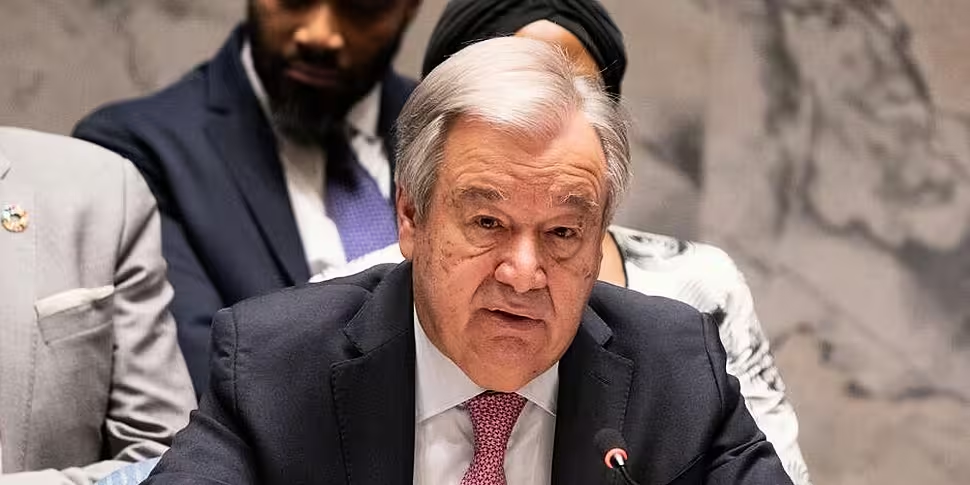The head of the United Nations has called for maximum restraint after an attack on Israel by Iran.
Late on Sunday UN Secretary-General António Guterres joined G7 leaders and Arab nations in calling for calm, telling the UN Security Council: "The Middle East is on the brink."
Iran launched more than 300 drones and missiles into Israel in response to a strike on an Iranian consular building in Syria earlier this month which killed two Iranian generals.
That strike has been widely blamed on Israel.
Several missiles reportedly struck within Israeli territory, one of which damaged an Israeli military facility in the south of the country.
 Israeli Iron Dome air defense system launches to intercept missiles fired from Iran. Image: Associated Press / Alamy
Israeli Iron Dome air defense system launches to intercept missiles fired from Iran. Image: Associated Press / Alamy"It is vital to avoid any action that could lead to major military confrontations on multiple fronts in the Middle East," Mr Guterres said.
"Now is the time to defuse and de-escalate. Now is the time for maximum restraint.
"We have a shared responsibility to work for peace. Regional – and indeed global - peace and security are being undermined by the hour.
"Neither the region nor the world can afford more war".
He added that civilians "are already bearing the brunt and paying the highest price".
 G7 leaders hold talks to discuss Iran’s attack on Israel, 14-4-24. Image: X/@POTUS
G7 leaders hold talks to discuss Iran’s attack on Israel, 14-4-24. Image: X/@POTUSTánaiste Micheál Martin also strongly condemned Iran's attack on Israel.
"The scale and intensity of the attack represents a flagrant threat to international peace and security and is utterly unacceptable," he said yesterday.
Minister Martin said such actions do "nothing to help the cause of the Palestinian people", adding that there is "now an urgent need for regional de-escalation".
'Right to respond'
Iran's ambassador to the UN said Israel's promise of a significant response to Saturday's attack is "a threat, not an action".
Amir Saeid Iravani was speaking after an emergency meeting of the UN Security Council in New York on Sunday.
Israel's war cabinet also met on Sunday to discuss possible retaliation against Iran, with the country's broadcaster Channel 12 quoting an unnamed official as vowing a "significant response".
Ambassador Iravani said Israel "would know what our second retaliation would be... they understand the next one will be most decisive".
But he said he believed a conclusion had been reached, adding: "I think there should be no military response from Israel."
The weekend brought long-simmering tensions between the two countries to boiling point, sparking fears that the conflict could spread more widely across the Middle East region.
When asked if his country's actions had risked escalation towards a wider war, Ambassador Iravani said: "It was our legitimate right to respond because they started aggression against our diplomatic premises."
Israel managed to repel most of Iran's weekend attack, with the help of its Iron Dome defence system and forces from the US, France, Jordan and the UK.
Ahead of Israel's war cabinet meeting, centrist minister and war cabinet member Benny Gantz said: "We will build a regional coalition and exact the price from Iran in the fashion and timing that is right for us."
 US President Joe Biden meets with his national security team for an update on Iran’s attacks against Israel, 14-4-24. Image: X/@POTUS
US President Joe Biden meets with his national security team for an update on Iran’s attacks against Israel, 14-4-24. Image: X/@POTUSDeputy US ambassador to the UN Robert Wood threatened additional measures at the global body to hold Iran accountable, warning: "If Iran or its proxies take actions against the United States or further action against Israel, Iran will be held responsible."
The US has already said that, while it does not seek to escalate the conflict, it will continue to defend Israel.
US President Joe Biden was in the Situation Room at the White House throughout Saturday evening watching Iran's attack on Israel unfold in real time.
The Israeli ambassador to the US Michael Herzog, brother of Israeli President Isaac Herzog, was taken to the White House to be with President Biden.
Following the attack President Biden spoke to Israeli Prime Minister Benjamin Netanyahu.
According to US administration officials, the "spectacularly defeated attack" represented the big win that Mr Netanyahu should take.
The White House acknowledged that Israel will make its own decisions in terms of a response and the focus of the President's call, beyond reaffirming support for Israel, was a discussion about how to slow things down.
Despite expecting some sort of Iranian strike on Israel, US administration officials have admitted that the attack's scope was "at the high end". The use of ballistic missiles particularly surprised them.
Additional reporting: IRN









